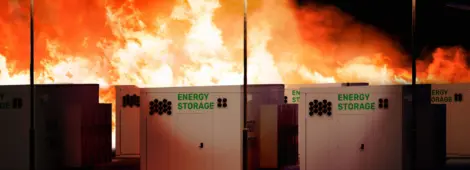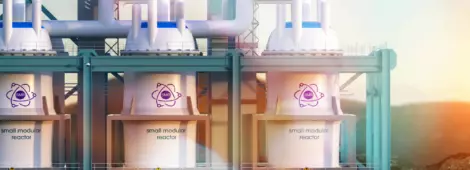
How COVID-19 May Be the Catalyst for Cloud-Based Storage in the Mission Critical Industry
by Mark Suski
The COVID-19 pandemic has forced many employees to work remotely, putting a strain on corporate servers. Corporate Information Technology (IT) equipment and infrastructure were not originally designed to accommodate an entire workforce trying to remotely access company IT equipment and the Internet.
For Mission Critical companies such as telecoms, utilities and banks, it’s crucial that their data centers and systems operate safety, reliably and efficiently to support working remotely. But how will this industry adapt to a post-coronavirus reality? And will the pandemic change how mission critical facilities view fire safety?
Move to Cloud-Based Systems for Data Centers after COVID-19
IT systems operate everything from a company’s communication systems to storing valuable records that are vital to financial continuity. That’s the reason the industry refers to data centers and IT infrastructure systems as Mission Critical. These critical systems allow business such as banks, healthcare companies and flight control towers to function around the clock. After the pandemic subsides, companies will look to understand the lessons learned from the pandemic and will aim to ensure their IT systems are more robust and stable.
Because of this, it’s likely we’ll see more cloud-based systems housed in large data centers instead of local-based networks with servers and IT equipment on company premises. The cloud-based server has many strategic benefits; storage is more scalable and upgrading storage capacity is fairly easily as needs grow, and since IT equipment is not onsite, the real estate needed for a data center is significantly reduced. Access to cloud-based information is easy, automatically backed-up and can be done anywhere with an internet connection. Cloud-based storage services have exponentially gained in popularity over the past decade and is a widely utilized option for secure, easy and scalable access to information.
The Importance of Fire Protection for Cloud-Based Systems
When discussing business continuity for Mission Critical businesses, a lot of focus is put on electronic and cyber protection, however fire protection is equally important for cloud-based system safety and security.
Computer equipment is highly susceptible to temperature and by-products of smoke. A rise in 10-20 degrees Fahrenheit can start to damage computer boards, but the primary damage to electronic equipment comes from smoke and the corrosive by-products produced during the combustion process. When added to the moisture in the air the particulates left after the smoke is removed can corrode the sensitive electronic connections in computer boards. In many cases, it is the smoke and residue that does more long-term damage than the fire. To ensure electronic equipment in data centers are protected against fire and smoke there are three key factors to consider:
- Sophisticated smoke detection systems to detect a fire in the earliest stages to minimize damage to adjacent server racks
- Compartmentation and passive protection components to contain the fire exposure to a small area
- Suppression and extinguishing systems to minimize the damage and any potential downtime
Mission Critical Industry After COVID-19
The COVID-19 pandemic has demonstrated how important mission critical services are to enable a global workforce. Using cloud-based IT systems will help companies better maintain business continuity and create more resilient data centers, while supporting an increasingly remote workforce. As companies evaluate their plans, they also need to consider an effective fire protection to mitigate any future disasters.












